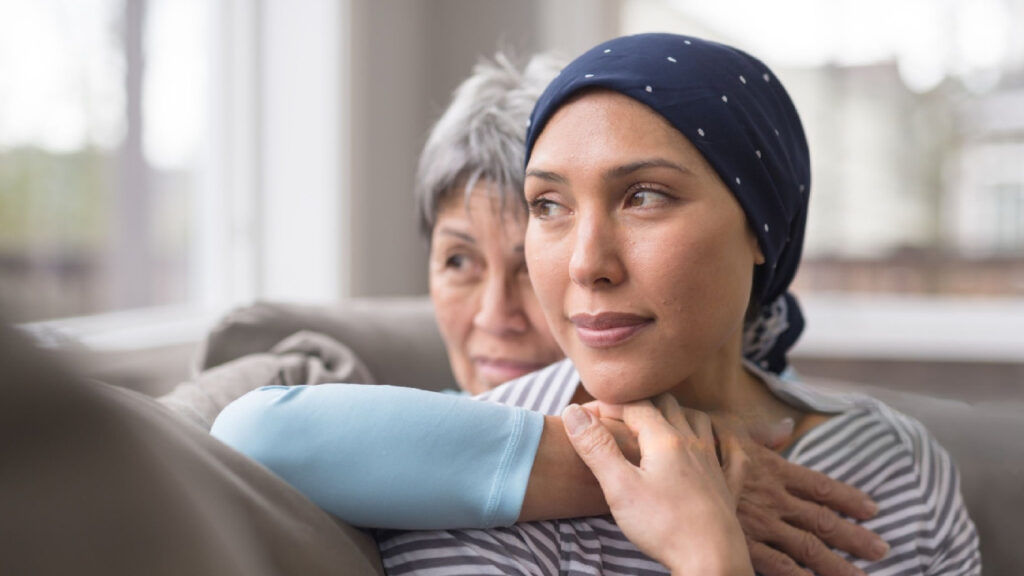Evidence Based
This article relies on solid scientific evidence, authored by experts, and thoroughly fact-checked by specialists.
Our team of licensed nutritionists and dietitians strives to maintain objectivity, impartiality, and honesty. We aim to present a fair representation of both sides of the argument.
Scientific references are included throughout this article. The numbers in parentheses (1, 2, 3) are clickable links to peer-reviewed scientific papers. These sources further support the information provided.

Cancer, a formidable adversary of human health, has various forms that can affect any part of the body. Among these, breast cancer stands as one of the most prevalent and concerning. The impact of breast cancer on individuals, families, and society as a whole is undeniable, making prevention and risk reduction crucial. While not all factors are within our control, lifestyle choices play a significant role in mitigating the risk of breast cancer.
The precise causes of breast cancer are not yet fully comprehended by researchers. However, in recent years, advancements in early detection and improved treatment methods have contributed to a decrease in the mortality rate associated with this disease (1
American Cancer Society
Highly respected international organization
Go to source ).
In this comprehensive guide, we will delve into the multifaceted world of breast cancer, exploring the latest research and evidence-backed strategies to empower everyone, regardless of gender, with the knowledge to make informed choices that may help reduce the risk of breast cancer.
Understanding Breast Cancer: A Complex Challenge
Breast cancer is a complex disease with various subtypes and contributing factors. It primarily originates in the breast tissue, usually in the milk ducts or lobules. The risk factors for breast cancer are diverse and can include genetic predisposition, hormonal influences, environmental exposures, and lifestyle choices. While some risk factors are beyond our control, such as age and family history, there are several strategies individuals can adopt to potentially lower their risk.
1. Nourishing Your Body for Protection
A well-balanced and nutrient-rich diet is the cornerstone of good health.
In a clinical trial conducted in 2015, it was discovered that individuals who consumed a Mediterranean diet supplemented with extra-virgin olive oil had a comparatively reduced risk of developing malignant breast cancer after menopause, as opposed to those who followed a control diet (2
JAMA
Highly respected journal
Go to source ).
Research suggests that certain dietary choices may play a role in reducing the risk of breast cancer:
Embrace a Plant-Centric Diet
Plant-based diets rich in fruits, vegetables, whole grains, legumes, and nuts have been linked to a lower risk of various cancers, including breast cancer. These foods are packed with essential vitamins, minerals, antioxidants, and dietary fiber that promote overall health and support the body’s defense mechanisms against cancerous cells.
Opt for Healthy Fats
Choose healthy fats, such as those found in avocados, nuts, seeds, and olive oil, while limiting saturated and trans fats. Omega-3 fatty acids, commonly found in fatty fish like salmon, have demonstrated potential in reducing inflammation and supporting cellular health.
Limit Processed Foods and Added Sugars
Processed foods and excessive added sugars contribute to weight gain and metabolic disturbances, which can increase the risk of breast cancer. Opt for whole foods and be mindful of hidden sugars in packaged products.
Summary
Nourishing your body through a plant-centric diet rich in antioxidants and healthy fats can serve as a protective measure against breast cancer.
2. Maintaining a Healthy Weight
Maintaining a healthy body weight is pivotal for reducing the risk of breast cancer. Excess body fat, especially after menopause, can lead to increased estrogen production, a hormone linked to the development of certain breast cancers. Here’s how you can work towards achieving and maintaining a healthy weight:
Regular Physical Activity
Engage in regular physical activity, aiming for at least 150 minutes of moderate-intensity exercise or 75 minutes of vigorous-intensity exercise per week.
To safeguard against breast cancer, it is recommended that adults engage in either 150–300 minutes of moderate-intensity or 75–150 minutes of vigorous-intensity physical activity each week (3
Wiley
Reputable source of peer-reviewed health information
Go to source ).
Incorporate activities you enjoy, such as brisk walking, swimming, cycling, or dancing, to make fitness an integral part of your routine.
Strength Training
Include strength training exercises to build lean muscle mass, boost metabolism, and enhance overall body composition. Strength training can also have a positive impact on insulin sensitivity, reducing the risk of insulin-related conditions.
3. Hormone Balance and Breast Cancer
Hormonal imbalances can influence breast cancer risk. Estrogen, for instance, plays a key role in the development and progression of hormone receptor-positive breast cancer. Strategies to maintain hormone balance include:
Birth Control and Hormone Replacement Therapy (HRT)
If considering birth control or HRT, discuss the potential risks and benefits with a healthcare professional. These therapies can impact hormone levels and should be approached with caution, especially for individuals with a higher risk of breast cancer.
Breastfeeding
For mothers, breastfeeding can have protective effects. It not only provides essential nutrition to infants but also helps reduce the mother’s lifetime exposure to estrogen, potentially decreasing breast cancer risk.
4. Environmental Factors and Lifestyle Choices
Beyond diet and exercise, environmental factors and certain lifestyle choices can influence breast cancer risk:
Minimize Exposure to Environmental Toxins
Limit exposure to endocrine-disrupting chemicals found in plastics, pesticides, and household products. Opt for BPA-free containers, choose organic produce, and be cautious with personal care products containing potentially harmful ingredients.
Limit Alcohol Consumption
Alcohol consumption is associated with an increased risk of breast cancer. If you choose to drink, do so in moderation. For those concerned about breast cancer risk, it might be prudent to limit alcohol intake or avoid it altogether.
5. Regular Health Screenings and Self-Care
Regular health screenings and self-care practices contribute to early detection and overall well-being:
Mammograms and Clinical Exams
Adhere to recommended screening guidelines for mammograms and clinical breast exams. Early detection greatly enhances the chances of successful treatment.
Self-Breast Exams
Perform regular self-breast exams to become familiar with your breast tissue and promptly report any changes to a healthcare provider.
Stress Management and Sleep
Prioritize stress management and quality sleep. Chronic stress and sleep deprivation can weaken the immune system and potentially affect cancer surveillance mechanisms.
Empowering the Journey Ahead
While breast cancer cannot be completely eliminated by lifestyle choices, adopting a health-conscious approach to life can play a pivotal role in reducing the risk and promoting overall well-being. By making informed dietary decisions, staying active, maintaining a healthy weight, and embracing preventive practices, individuals can empower themselves in the ongoing battle against breast cancer. Remember, every step taken towards a healthier lifestyle is a step towards a brighter, more resilient future.
How we reviewed this article:
HISTORY
Our experts continually monitor the health and wellness space, and we update our articles when new information becomes available.




